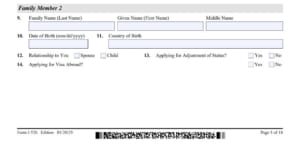 As has become the norm, the U.S. Congress passed a short-term continuing resolution (“CR”) funding the U.S. federal government through December 20, 2019, while at the same time extending 29 other programs including the EB-5 Immigrant Investor Program. The President signed the CR shortly thereafter.
As has become the norm, the U.S. Congress passed a short-term continuing resolution (“CR”) funding the U.S. federal government through December 20, 2019, while at the same time extending 29 other programs including the EB-5 Immigrant Investor Program. The President signed the CR shortly thereafter.
Also known as the EB-5 Regional Center Program (“Program”), the Program has been a “Pilot” or temporary test program since its initial enactment by Congress in 1993. Since 2015, the Program has been extended many times, always in combination with the continuing resolution keeping the federal government funded and running.
It is critical to continue to extend, or hopefully make permanent, the Program to protect the eligibility of tens of thousands of investors and family member who are waiting in line for EB-5 visas to become available. A sunset of the Program would result in any investor and family members who do not already have a visa issued by a U.S. Consulate or an approved adjustment of status application by the United States Citizenship and Immigration Service to fail to benefit from the Program, in other words, would not obtain permanent resident status. Congress continues to “kick the can down the road” and we have no reason to believe that the Program will not continue to be extended in the foreseeable future.
If you are considering immigrating to the U.S. via the EB-5 immigrant visa, contact us at




